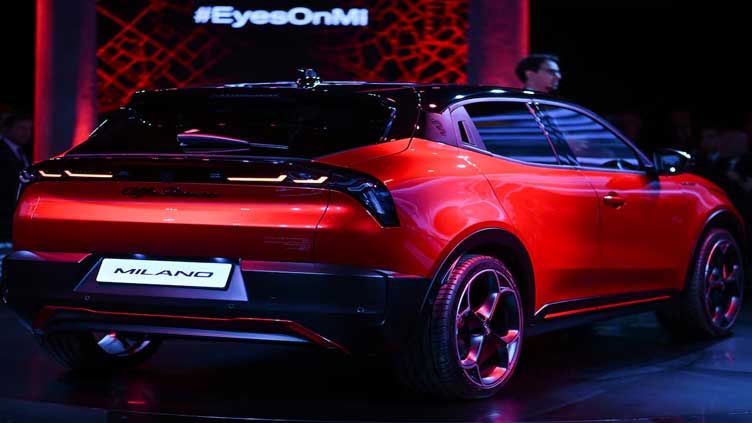Stellantis to launch fleet of EVs fitted with Factorial solid-state batteries

Technology
Stellantis to launch fleet of EVs fitted with Factorial solid-state batteries
MILAN (Reuters) - Carmaker Stellantis will launch by 2026 a demonstration fleet of vehicles fitted with solid-state batteries from US startup Factorial, the two companies said on Wednesday.
Solid-state batteries are expected to reduce fire risk and allow for lighter, lower-cost cars that can travel further on a single charge. They are seen as a game-changing technology for electric vehicles, as automakers seek ways to cut costs and boost their range amid stagnating EV sales.
However, solid-state batteries are proving harder than expected for major automakers and battery-making partners to develop at scale.
The launch is part of a partnership between Stellantis and Factorial, which began in 2021 with a $75 million investment made by the world's fourth-largest carmaker in the US firm.
The demonstration fleet will mark an important next step in the commercialisation of the "promising" technology and help Stellantis assess its performance in real-world driving conditions, the two companies said in a joint statement.
Factorial's batteries will be fitted in a fleet of all-new Dodge Charger Daytona vehicles, which are based on Stellantis' STLA Large platform also support large-sized models under other brands of the group, including Jeep, Dodge, Chrysler, Alfa Romeo, and Maserati, they said.
"By integrating Factorial's innovative battery solution into the STLA Large platform, we are validating its potential to enhance our electric vehicle lineup, ensuring customers benefit from improved performance, longer driving ranges and faster charging times in the coming years," Stellantis' Chief Engineering and Technology Officer Ned Curic said.
Stellantis' STLA Large multi-energy platform is focused on high-volume electric SUVs and performance vehicles. It is designed to support up to two million vehicles globally, according to the automaker's plans, making it suited to the introduction of solid-state battery technology, the two companies said.


